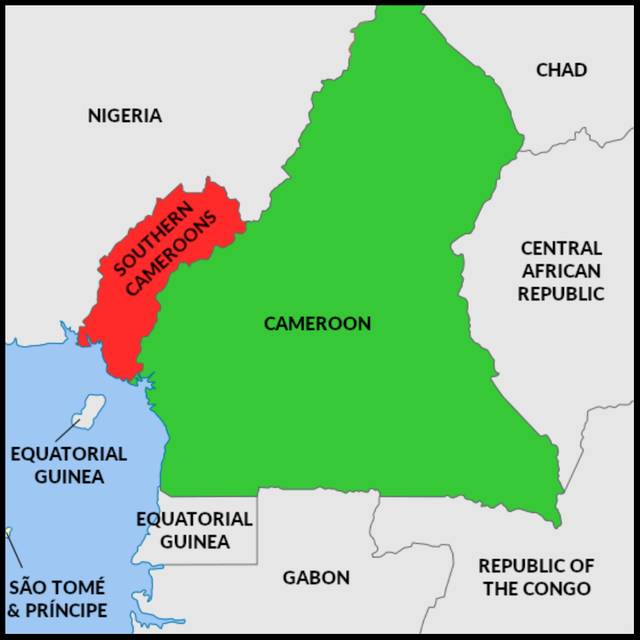Top Qs
Timeline
Chat
Perspective
Cameroonian English
Dialect of English From Wikipedia, the free encyclopedia
Remove ads
Cameroonian English (CamE), also known as Cameroon English, or sometimes Cameroon Anglophone English[1] or Ambazonian English,[2] is an English dialect spoken predominantly in Cameroon. It shares some similarities with English varieties in neighbouring West Africa, as Cameroon lies at the west of Central Africa;[3] however, its distinctive phonetics, phonology and lexicon, influenced both by French and by indigenous Cameroonian languages, distinguish it as an independent variety.[4] It is primarily spoken in the Northwest and Southwest regions of Cameroon.[5]
It is a postcolonial variety of English, long in use in the territory (Southern Cameroons, now split into Northwest and Southwest). Over the years, it has developed characteristic features, particularly in lexis but also in phonology and grammar. Those characteristics were once regarded as errors but are now increasingly accepted as distinctive Cameroonian contributions to the English language.
Remove ads
History
Varieties
There are differences between the formal, "institutional" variety of Cameroonian English, which is based on British English and is taught in schools in Cameroon, and the indigenised "communal" variety, which is the more innovative form spoken in Anglophone communities.[6] Varietal differences also exist between speaker communities of various indigenous languages such as Nso and Akoose.[7]
Phonology
The phonemes /ɔː/, /ʌ/ and /ɒ/ tend to merge to /ɔː/, making "cot", "caught" and "cut" homophones.[8] Similarly, "lock" and "luck" are pronounced alike, and "white-collar worker" sometimes becomes "white-colour worker" in Cameroon.[9]
Grammar
Morphology
Syntax
Vocabulary
The Cameroon English lexicon is characterised by significant lexical innovation, including various types of word formation such as borrowing, derivation and semantic change.[10]
Characteristic turns of phrase in the country or local coinages:[9]
- "detailly" = in detail
- "to see with me" = to agree with me; to see my point of view
- "installmentally" = by installments
- "of recent" = recently; lately
Examples
See also
References
Further reading
Wikiwand - on
Seamless Wikipedia browsing. On steroids.
Remove ads

